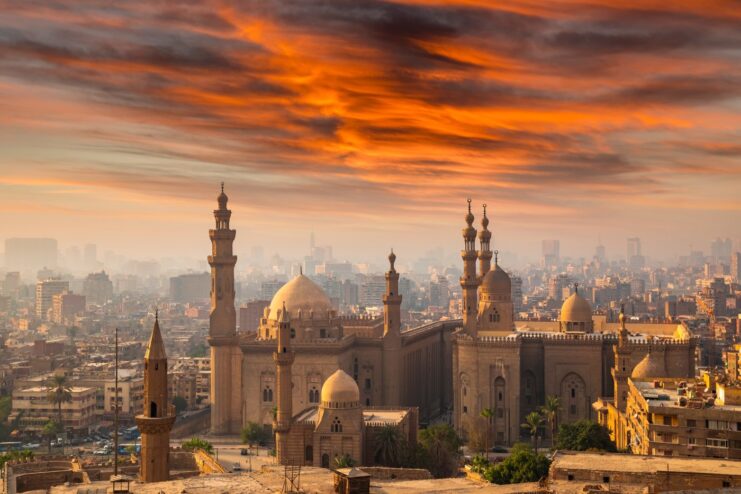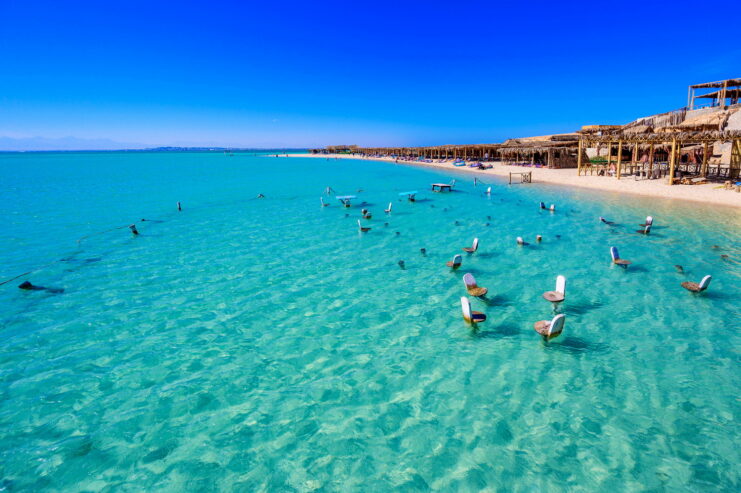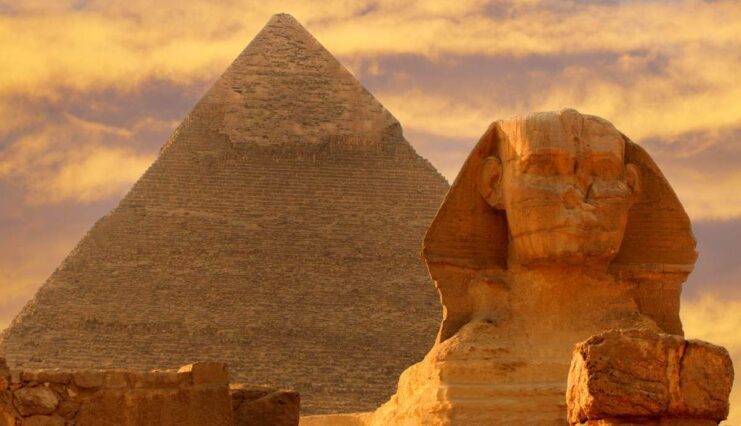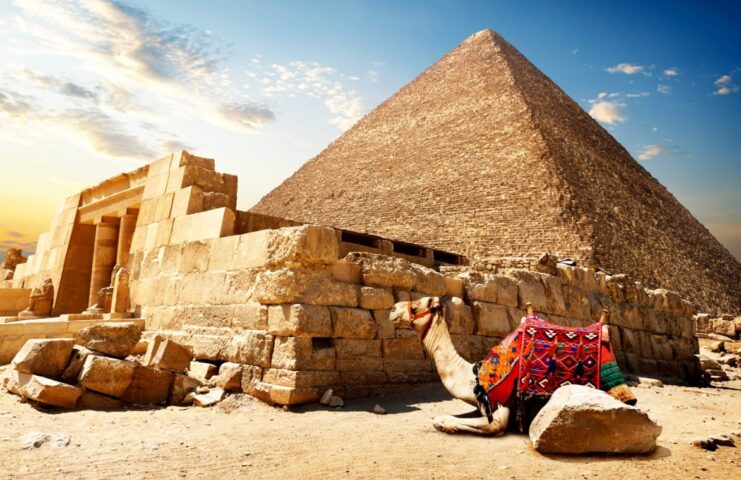Embarking on a journey to Egypt, a land steeped in history, is both exhilarating and challenging. Preparing for such an adventure requires thoughtful planning. First, identify the time of year you wish to travel.
Egypt’s climate varies from scorching summers to mild winters. The period between October and April offers pleasant weather, ideal for exploring outdoor historical sites.
Booking flights and accommodations in advance is crucial, especially during peak tourist seasons. Consider staying in cities like Cairo or Luxor, which offer convenient access to many historical sites. Hiring a local guide can enrich your experience, providing insights into Egypt’s rich history and culture.
Navigating Egypt’s Transportation
Egypt’s transportation network includes buses, trains, and domestic flights, offering various options to traverse the country. Trains are a comfortable and efficient way to travel between major cities like Cairo, Alexandria, and Luxor. For more remote destinations, consider domestic flights or renting a car.
When in cities, taxis and ride-sharing apps are convenient for short distances. However, be prepared for bustling traffic in urban areas. Always negotiate taxi fares before starting your journey to avoid misunderstandings.
Immersing in Cairo’s Rich History

Cairo, Egypt’s sprawling capital, is a treasure trove of historical sites. The Egyptian Museum houses an extensive collection of ancient artifacts, including the famous Tutankhamun exhibit.
Not far from the city center lies the iconic Giza Plateau, home to the Great Pyramids and the Sphinx. This ancient wonder offers a glimpse into Egypt’s Pharaonic past and is a must-visit for any traveler.
If you are ready for your upcoming Egypt vacation or need help with the preparation and organization of accommodations and excursions, check out https://www.luxorandaswan.com/Egypt/travel-pakages.
Exploring Old Cairo reveals a blend of Islamic, Coptic, and Jewish heritage. The historic Khan El Khalili bazaar is a vibrant maze of shops and cafes, perfect for experiencing local culture and craftsmanship.
Luxor: The World’s Greatest Open-Air Museum
Luxor, once the ancient city of Thebes, is often referred to as the world’s greatest open-air museum. The Temple of Karnak, a vast complex of sanctuaries and pylons, stands testament to the architectural prowess of the ancient Egyptians.
Across the Nile, the Valley of the Kings and Queens houses the tombs of Pharaohs and their consorts, including the famous tomb of Tutankhamun.
Take a felucca ride on the Nile at sunset for a serene experience, offering stunning views of the Luxor landscape.
Aswan: Gateway to Ancient Nubia
Further south lies Aswan, known for its serene environment and Nubian culture. The Philae Temple, dedicated to the goddess Isis, is a marvel of ancient engineering, relocated to its current location to save it from flooding.
Aswan also serves as the gateway to Abu Simbel, home to the colossal temples of Ramses II and Queen Nefertari, a testament to ancient Egypt’s grandeur.
Exploring Aswan’s colorful markets and enjoying a traditional Nubian meal provide a deeper understanding of the local culture.
Experiencing Red Sea Wonders

Apart from historical sites, Egypt’s Red Sea coast offers a different kind of adventure. Cities like Hurghada and Sharm El Sheikh are renowned for their stunning beaches and world-class diving spots.
The Red Sea’s rich marine life and coral reefs make it a paradise for divers and snorkelers.
Relaxing by the Red Sea provides a refreshing break from the intensity of historical explorations.
Engaging with Egyptian Culture and Cuisine
Understanding Egyptian culture enhances the travel experience. Engage with locals, learn a few basic Arabic phrases, and immerse yourself in the daily life of Egyptians.
Egyptian cuisine, a fusion of various influences, is not to be missed. Dishes like koshari, ful, and molokhia offer a taste of Egypt’s culinary diversity.
Attending traditional music and dance performances provides insights into Egypt’s rich cultural heritage.
Preparing for Your Journey
Prior to departure, ensure you have all necessary travel documents, including visas. Familiarize yourself with local customs and dress codes, especially when visiting religious sites. Dress modestly and respect local traditions to foster positive interactions with locals.
Staying hydrated and protecting yourself from the sun are essential in Egypt’s climate. Carry bottled water and use sunscreen regularly.
Embracing the Desert’s Majesty

Beyond the bustling cities and monumental temples lies Egypt’s vast and majestic desert landscape. A venture into the Western Desert opens up a world of awe-inspiring natural wonders.
The White Desert National Park, famous for its surreal chalk rock formations, offers a landscape so alien, it feels like stepping onto another planet.
A guided desert safari can lead you through the Black Desert, characterized by its black volcanic hills, and to the crystal mountain, a natural rock formation full of quartz crystal.
The tranquility and stark beauty of Egypt’s deserts provide a stark contrast to the lively urban areas and are a must for those seeking a deeper connection with Egypt’s diverse natural landscapes.
Discovering Alexandria’s Mediterranean Charm
Alexandria, the pearl of the Mediterranean, presents a different facet of Egypt’s rich tapestry. Founded by Alexander the Great, this coastal city blends Greco-Roman and Egyptian history.
The Bibliotheca Alexandrina, a modern tribute to the ancient Library of Alexandria, is an architectural marvel and a center for cultural and historical knowledge.
The Catacombs of Kom El Shoqafa, a Roman burial site, and the Citadel of Qaitbay, a 15th-century fortress built on the site of the ancient Lighthouse of Alexandria, are testaments to the city’s layered history.
Reflecting on Egypt’s Timeless Appeal
Egypt’s allure lies not just in its monuments and landscapes, but in its ability to connect us with a past that has shaped the world. Walking through the corridors of ancient temples, gazing upon hieroglyphics, or standing in the shadow of the pyramids, one feels a profound connection to history.
It’s a reminder of humanity’s enduring spirit and the mysteries of our collective past.
The journey through Egypt is more than a trip; it’s an exploration of the human journey, a reflection on our place in the tapestry of time. Each traveler leaves with a deeper appreciation of history and a renewed sense of wonder at the enduring legacy of one of the world’s oldest civilizations.
In Conclusion

A journey through Egypt is a voyage through time, revealing stories of ancient civilizations, monumental architecture, and enduring culture. With proper planning and an open mind, your Egyptian adventure will be an unforgettable experience, leaving you with memories to cherish for a lifetime.












